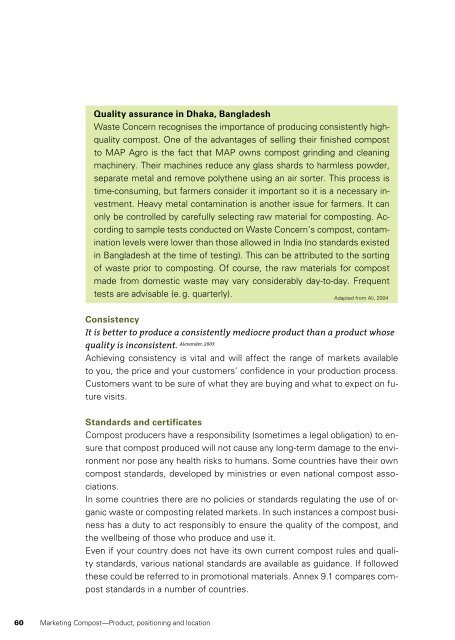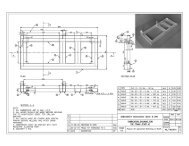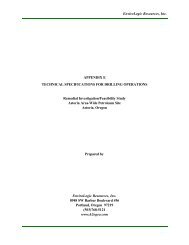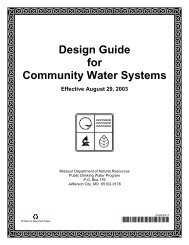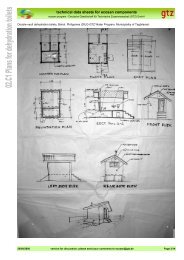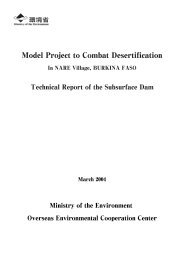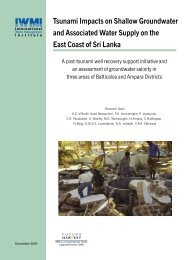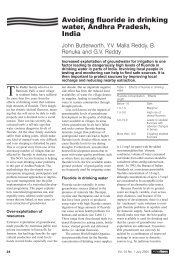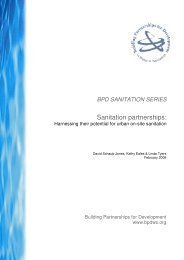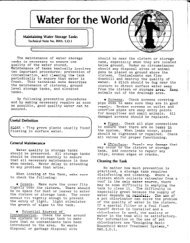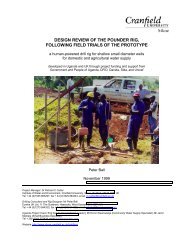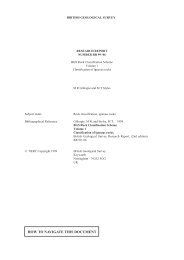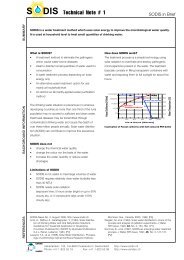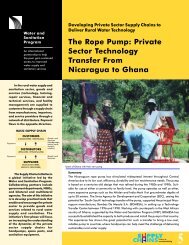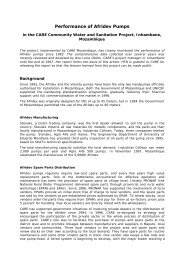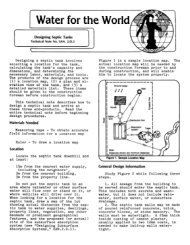Marketing Compost (EAWAG) - The Water, Sanitation and Hygiene
Marketing Compost (EAWAG) - The Water, Sanitation and Hygiene
Marketing Compost (EAWAG) - The Water, Sanitation and Hygiene
You also want an ePaper? Increase the reach of your titles
YUMPU automatically turns print PDFs into web optimized ePapers that Google loves.
Quality assurance in Dhaka, Bangladesh<br />
Waste Concern recognises the importance of producing consistently highquality<br />
compost. One of the advantages of selling their finished compost<br />
to MAP Agro is the fact that MAP owns compost grinding <strong>and</strong> cleaning<br />
machinery. <strong>The</strong>ir machines reduce any glass shards to harmless powder,<br />
separate metal <strong>and</strong> remove polythene using an air sorter. This process is<br />
time-consuming, but farmers consider it important so it is a necessary investment.<br />
Heavy metal contamination is another issue for farmers. It can<br />
only be controlled by carefully selecting raw material for composting. According<br />
to sample tests conducted on Waste Concern’s compost, contamination<br />
levels were lower than those allowed in India (no st<strong>and</strong>ards existed<br />
in Bangladesh at the time of testing). This can be attributed to the sorting<br />
of waste prior to composting. Of course, the raw materials for compost<br />
made from domestic waste may vary considerably day-to-day. Frequent<br />
tests are advisable (e. g. quarterly).<br />
Adapted from Ali, 2004<br />
Consistency<br />
It is better to produce a consistently mediocre product than a product whose<br />
Alex<strong>and</strong>er, 2003<br />
quality is inconsistent.<br />
Achieving consistency is vital <strong>and</strong> will affect the range of markets available<br />
to you, the price <strong>and</strong> your customers’ confidence in your production process.<br />
Customers want to be sure of what they are buying <strong>and</strong> what to expect on future<br />
visits.<br />
St<strong>and</strong>ards <strong>and</strong> certificates<br />
<strong>Compost</strong> producers have a responsibility (sometimes a legal obligation) to ensure<br />
that compost produced will not cause any long-term damage to the environment<br />
nor pose any health risks to humans. Some countries have their own<br />
compost st<strong>and</strong>ards, developed by ministries or even national compost associations.<br />
In some countries there are no policies or st<strong>and</strong>ards regulating the use of organic<br />
waste or composting related markets. In such instances a compost business<br />
has a duty to act responsibly to ensure the quality of the compost, <strong>and</strong><br />
the wellbeing of those who produce <strong>and</strong> use it.<br />
Even if your country does not have its own current compost rules <strong>and</strong> quality<br />
st<strong>and</strong>ards, various national st<strong>and</strong>ards are available as guidance. If followed<br />
these could be referred to in promotional materials. Annex 9.1 compares compost<br />
st<strong>and</strong>ards in a number of countries.<br />
60 <strong>Marketing</strong> <strong>Compost</strong>—Product, positioning <strong>and</strong> location


